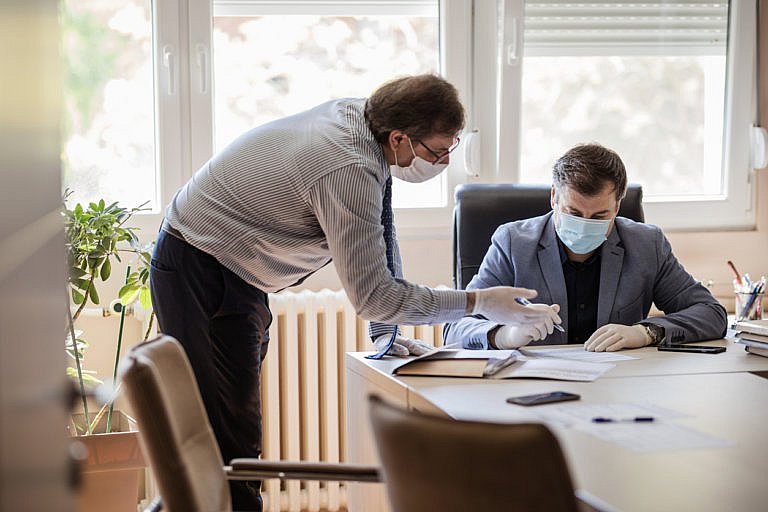As of the end of July, more than 150,000 people have died from the coronavirus in the United States. Over 4.4 million people have been diagnosed with the coronavirus. Most people who contract the coronavirus recover from the virus without any lasting side effects. Unfortunately, coronavirus can also cause perilous symptoms. Some coronavirus patients have needed to become sedated and go onto a ventilator for an extended period. The risks involved with COVID-19 make it even more vital to have a health care proxy and an advance medical directive in place.
1. You May Be All Alone in the Hospital
Because the novel coronavirus is highly contagious, many hospitals and nursing homes have instituted a no visitor policy. If you are admitted into a hospital, there is a good chance your family members will not be allowed inside the hospital. Even if you don’t have COVID-19, hospitals may still refuse your loved ones to come into your room.
Your family won’t be able to talk to doctors in person, right away. They won’t be able to get updates from your doctor immediately or tell the doctor who your healthcare agent is or provide any other relative medical information about the person. When you have a completed health care proxy and advance directive, you can get the ball rolling as soon as possible when it comes to medical decision making. Doctors can immediately know what your preferences are for difficult medical decisions, as well as your medical conditions and allergies.
2. You May Become Unable to Communicate While on a Ventilator
When patients are severely affected by the coronavirus, doctors will place them on a ventilator. Patients who are in hospitals on ventilators are not able to communicate with their health care professionals and conduct other health care decision making with their doctors. The severity of COVID-19 in some patients and the fact that it spreads so quickly demonstrates why every person in the United States needs an advance healthcare directive.
By completing a health care proxy and an advance directive, you can make sure that you receive care according to your preferences. The health care proxy gives permission to your agent to speak on your behalf regarding your care if you become incapacitated. The advance healthcare directive communicates your preferences for care and any types of life-saving maneuvers you’d like to be taken in difficult medical situations. We recommend giving copies to your doctor and/or your chosen health care agency and your selected agent(s).
3. Advance Directives Aren’t Only for Seniors
As the coronavirus has shown us, these important documents aren’t needed only for seniors or terminally ill patients. Sadly, younger people from their 20s to their 40s are dying from the coronavirus. If you have certain pre-existing conditions, you’re more likely to be severely affected. Some people without serious medical conditions are also dying from the virus, however.
Many times when younger individuals contract the coronavirus, their families are in a state of shock and have difficulty making decisions. We’ve also seen examples of otherwise healthy, younger people catching the coronavirus and experiencing a steep decline in 24 hours. Knowing that you’ve prepared an advance directive will give you peace of mind, and it will help your family know what decisions you would like to be made in certain situations.
Contact Our Law Firm to Schedule Your Initial Consultation
At Surprenant & Beneski, PC, we can help you create a health care proxy and an advance directive. Contact our Southeastern Massachusetts estate planning lawyers today to schedule your initial consultation.
©Surprenant & Beneski, P.C. 35 Arnold Street, New Bedford, MA 02740, 336 South Street, Hyannis MA 02601 and 45 Bristol Drive, Easton MA 02375. This article is for illustration purposes only. This handout does not constitute legal advice. There is no attorney/client relationship created with Surprenant & Beneski, P.C. by this article. DO NOT make decisions based upon information in this handout. Every family is unique and legal advice can only be given after an individual consultation with an elder law attorney. Any decisions made without proper legal advice may cause significant legal and financial problems.
